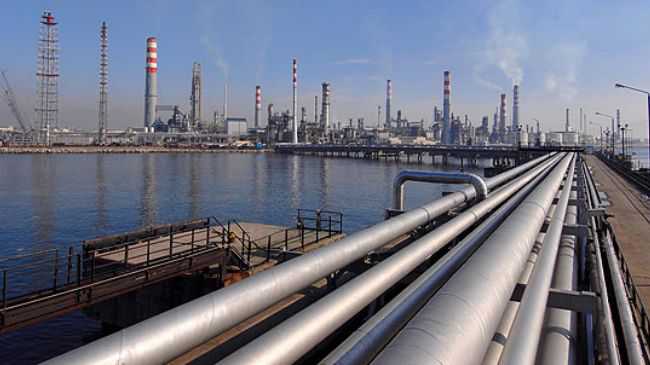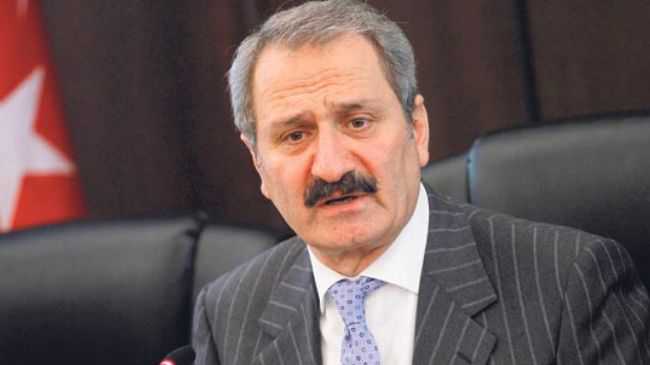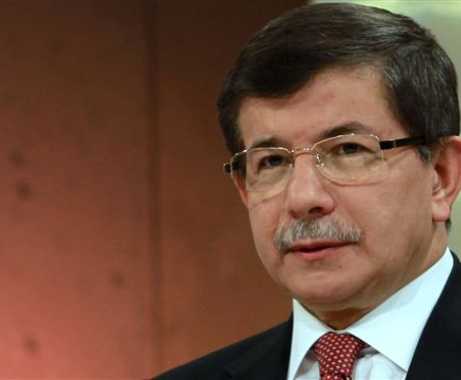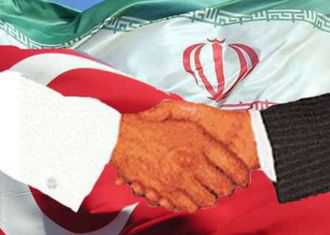Co-authored by Fuad Shahbazov, an analyst in the Turkish think tank Strategic Outlook.
As early as 2010, Iran and Turkey glittered like two inseparable lovers. It was the most astonishing sort of partnership one could imagine: an infatuation between a (Shia-dominated) theocratic republic opposed to the U.S., on one hand, and an (Sunni-majority) ultra-secularist state belonging to the NATO and aspiring to join the European Union (EU), on the other.
It was as dreamy as it was baffling. What brought them together was a combination of two factors: (a) Growing assertiveness among rising powers such as Turkey to more independently pursue self-interest and diversify foreign relations (ostensibly away from the West and towards the East and South); and (b) Almost perfect bilateral convergence, albeit temporarily, in strategic foresight and ideology, as Ankara’s Islamist leadership found growing reasons to reach out to its influential and resource-rich eastern neighbor, Iran, which also experienced a period of ‘reformist resurgence’ in the same period.
All was founded upon a simple but profoundly appealing bargain: Turkey needed Iran for energy security and influence, while Tehran needed its neighbor to reverse growing isolation within the Western order. Thus, after centuries of rivalry, the two Muslim powers finally awakened to their mutual interests amidst much fanfare.
So what went wrong? Syria!
It seems that growing disagreements over Syria — exacerbated by frustrations with the pace and tone of nuclear negotiations — has not only put Turko-Persian cooperation on key regional affairs on ice, but also placing the two powers on a collision course.
It’s the Economy, Stupid!
The Iran-Turkey partnership hasn’t been an empty flirtation, especially since the election of the Islamist Justice and Development Party (AKP) in Turkey. It has been a blossoming, multifaceted relationship that has covered a whole host of issues, ranging from trade, finance and energy to cultural exchanges and politico-security cooperation, especially on the nuclear question as well as the Kurdish insurgency in common borders with Iraq.
On the Kurdish issue, the two countries have been involved in a series of joint military and intelligence operations, where Turkish and Iranian security forces are said to have engaged Kurdish separatist groups such as the Kurdistan Workers’ Party (PKK) and Party of Free Life of Kurdistan (PJAK).
More importantly, Turkey shares Iran’s interest in avoiding another possible military confrontation in the region over Tehran’s nuclear program. This explains why Turkey has played a prominent role as a potential ‘intermediary’ in Iran-West nuclear negotiations. Together with Brazil, Turkey did not only broker a ‘nuclear swap deal’ in 2010, but also, in the following year, voted against Western-backed sanctions on Iran in the U.N. Security Council. Since January 2011, Turkey has hosted two major nuclear talks between Iran and the world powers, or the so-called P5+1.
However, economic issues have played a central role in cementing bilateral ties. Iran is important to Turkey, precisely because the Turkish economy faces serious energy-security concerns. In 2008, Turkey had an import-dependence of 93 percent in oil and 95 percent in natural gas. On top of it, Turkey has an even more serious diversification-problem. In 2005, Turkey imported 66 percent of its gas from one country alone: Russia. Given Russia’s history of using gas as a tool of foreign policy, as a major NATO member Turkey would seriously consider exploring ‘alternative’ sources of energy-imports.
Iran is both a major natural gas reserve holder and a possible corridor for trans-regional natural gas pipelines connecting resource-rich Caspian states and the Persian Gulf to Europe and Asia. In turn, Turkey is Iran’s gateway to Europe. This is the regional energy-economic map that both Iran and Turkey have sought to optimize.
So far, Iran has been Turkey’s second largest supplier of natural gas, with daily gas exports reaching a high of 31.5 million cubic meters in late-2010. In 2011, bilateral trade stood at more than $16 billion, projected to expand up to $30 billion in 2015. Importantly, Turkish companies — prior to the latest series of Western sanctions — were relatively eager to invest in Iran’s vast energy sector.
And the Skyfall….
By mid-2011, bilateral relations begun to gradually take a qualitative shift. Coming under increasing Western pressure, Turkey precipitously distanced itself from an increasingly embattled Iran, as the nuclear conundrum proved evermore intractable. Turkey also agreed to station a NATO missile defense shield, ostensibly to neutralize Iran’s ballistic threat — practically nullifying Iran’s prime tactical deterrence against an Israeli-American attack.
In response, Iran’s Revolutionary Guard’s (IRGC) aerospace chief, Gen. Amir Ali Hajizadeh, retorted, “Should we be threatened, we will target NATO’s missile defense shield in Turkey and then hit the next targets.”
This was followed by another incident whereby Iranian security-intelligence personnel temporarily detained and interrogated three Turkish academics on charges of espionage.
Moreover, under U.S. pressure, Ankara has reduced its Iranian oil import by as much as 20 percent and expressed less willingness to act as a financial intermediary — through the state-owned Halk bank — to process Iran’s multi-billion oil trade deals with countries such as India — in effect, contributing to the economic siege on Iran. Although, recent months have witnessed a dramatic peak in Turkey’s gold exports to Iran, apparently to settle earlier lira-based oil payments to Iran.
Yet it was the Syrian straw — supposedly the strategic linchpin in Turko-Persian relations — that broke the camel of Iran-Turkey friendship’s back. Back in August, in response to Turkey’s growing support for the armed opposition in Syria and constant opposition to the inclusion of Iran in any multilateral framework to facilitate political transition in Syria, Iranian Chief of Staff Maj. Gen. Seyed Hassan Firouzabadi ominously warned Turkey, “it will be its turn [if it continues to] to help advance the warmongering policies of the United States in Syria.”
This was followed by Iran’s suspension of ‘visa free’ arrangements with Turkey, while Tehran hinted at downgrading security cooperation with Ankara (possibly affecting the Kurdish front).
In return, Turkish officials have accused Iran of hosting PKK rebels and backing the oppression of people in Syria. Earlier this year, Turkish Deputy Prime Minister Bülent Arınç went as far as saying his country will do ‘whatever is required’ to counter the Iranian threat, despite incessant efforts by Iran’s foreign ministry to ‘damage control’ and downplay statements from the security branches.
In August, Turkey also practically boycotted the Non-Aligned Movement (NAM) Summit in Tehran by not sending its top representatives, despite a direct letter of invitation by the Iranian President, Mahmoud Ahmadinejad.
While Iran is concerned with Turkey’s so-called ‘neo-ottomanism’ — an ambition to reclaim Turkish historical centrality in regional affairs — Ankara is concerned with Iran’s nuclear ambitions as well as its influence on Syria and other radical/resistance elements. It knows that without Iranian pressure, Assad wouldn’t make drastic reforms. Iran knows that without Turkey, the armed opposition wouldn’t have had as much chance to dismantle the regime.
With Turkish-Syrian tensions culminating in recent cross-border artillery exchanges, threatening a full-scale war, Turko-Iranian ties came under growing pressure. Iran — along with Russia — has also criticized Turkey’s subsequent plans to host Patriot missile-defense systems, fearing Ankara could also use it against Tehran in the future.
Overall, depending on how the Syrian conflict unfolds, as well as the dynamics of the Iranian nuclear program, we may enter a renewed phase of confrontation between the two powers after almost a decade of rapprochement.
Suddenly, the two powers have found themselves on the opposite sides of the fence, occasionally exchanging fiery rhetoric and even threats of direct confrontation. We are also witnessing the unraveling of Turkey’s ‘zero problem with neighbors’ policy.





